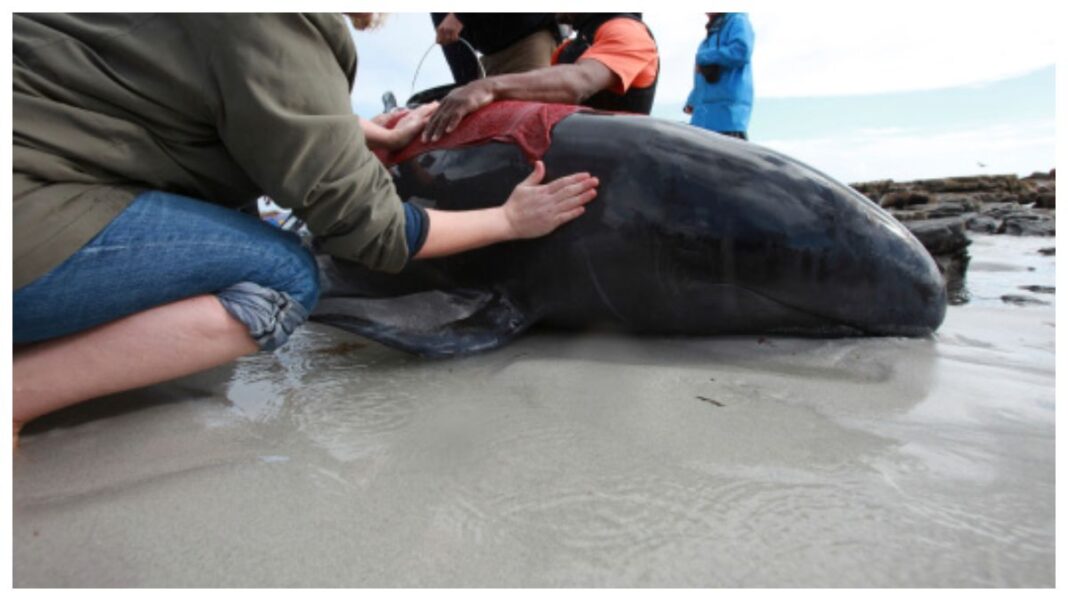AUSTRALIA. Around 380 whales were found dead in Macquarie Harbour of Australia. Nearly 460 long-finned pilot whales stuck in the sparsely populated west coast of Tasmania have now perished. The rescuers are putting in all their efforts to save the stranded whales. However, they managed to free just a few dozen.
Long-finned whales and their behavioural pattern
The long-finned whale is a huge species of oceanic dolphins. They are around 6-7m long and can weigh up to 5,070 pounds (2,300 kg). Pilot whales live in large groups. They always follow their leader in every way. For example, if the leader strays away from its path, the other whales will follow. The whales are known for stranding themselves on beaches. Breaching is a form of surfacing behaviour where most of the whales leave the water and get stranded on the beaches.
Read also Australia’s Daily COVID-19 Cases Fall Drastically Amid Strict Lockdown
Studies have shown that healthy whales are often found stranded on the beach. Scientists are not certain about the reason for mass strandings even after studying the whales for a decade. However, some researchers believe that the highly sociable pilot whales may have gone off track in search of food.

The mass stranding of pilot whales in Tasmania
The mass stranding of whales in Tasmania is the largest mass stranding ever in the history of Australia. Almost 80% of whale strandings take place in Tasmania. In 1935, around 294 pilot whales were found stranded there as well.
A rescue crew consisting of conservationists, skilled volunteers and local fish farm workers have made remarkable efforts to save the whales. The rescuers have spent two days in the cold shallow waters to free the still living creatures. They used special boats with slings attached to them to guide the survivors back to the ocean. As a result of their efforts, almost 50 whales were saved.
The whales have been found stranded up to six miles apart. Meanwhile, the officials have now expanded their search area and are searching for more stranded whales. However, some of the whales which were rescued on Tuesday re-stranded overnight.
Tasmanian marine biologist, Kris Carylon said in an open statement that the stranding was a natural phenomenon and has been occurring for a long time. He further added that this kind of event cannot be prevented and people can only step in and help the mammals.
The officials will now focus on the disposal of the whale carcasses. The assessors will create a complete clean-up plan today.



